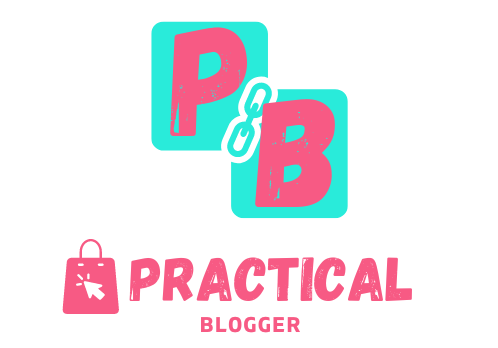Disclaimer: This post may contain affiliate links, meaning we may receive a commission at no extra cost to you if you make a purchase. See our full disclosure here: Affiliate Disclosure.
Learn the art of SEO content writing with our comprehensive guide. Discover expert strategies, tips, and best practices to boost your website’s visibility and rank higher on search engines.
- Introduction to SEO Content Writing
- 1. Understanding the Basics of SEO Content Writing
- 2. Crafting SEO-Friendly Content
- 3. Off-Page SEO for Content Writers
- 4. SEO Tools and Resources for Content Writers
- 5. Staying Up-to-Date with SEO Trends
- 6. Measuring SEO Success
- SEO Content Writing: Conclusion
- FAQs – SEO Content Writing
- Best Content for Book Lovers from Practical Blogger!
Introduction to SEO Content Writing
In the digital age, where information is at our fingertips, businesses and individuals alike are constantly vying for online visibility. Whether you’re a blogger, an e-commerce site owner, or a digital marketer, one thing is clear: if you want to stand out in the crowded online space, you need to master the art of SEO content writing.
This comprehensive guide will take you on a journey through the world of SEO content writing, equipping you with the knowledge and skills needed to optimize your content for search engines and, ultimately, drive more organic traffic to your website.
1. Understanding the Basics of SEO Content Writing
Before diving into the nitty-gritty of SEO content writing, it’s essential to grasp the fundamentals. SEO, which stands for Search Engine Optimization, is the practice of optimizing your content and website to rank higher on search engine results pages (SERPs). SEO content writing, then, is the art of creating content that appeals to both human readers and search engines.
1.1 Keyword Research
The cornerstone of SEO content writing is keyword research. Keywords are the phrases or terms that users type into search engines when looking for information. Effective keyword research involves finding the right keywords that are relevant to your content and have a reasonable search volume. Tools like Google Keyword Planner, SEMrush, and Ahrefs can help you identify these keywords.
1.2 On-Page SEO
On-page SEO involves optimizing individual web pages to improve their search engine rankings.
Key elements of on-page SEO include:
- Title Tags: Craft descriptive and keyword-rich titles for your pages.
- Meta Descriptions: Write compelling meta descriptions that entice users to click on your link in search results.
- Header Tags: Use H1, H2, and H3 tags to structure your content and make it more readable.
- Keyword Placement: Include keywords strategically throughout your content.
- Image Optimization: Optimize images with descriptive file names and alt tags.
1.3 Quality Content
While SEO is essential, never sacrifice the quality of your content for the sake of optimization. High-quality content that provides value to your readers is more likely to rank well and engage your audience. Google’s algorithms are increasingly focusing on content quality and relevance.
2. Crafting SEO-Friendly Content
Now that you understand the basics of SEO, it’s time to delve into the art of crafting SEO-friendly content.
2.1 Content Structure
Organize your content in a way that’s easy for readers to follow. Use clear headings and subheadings (H2 and H3 tags) to break up your text and make it scannable. This not only improves user experience but also helps search engines understand the structure of your content.
2.2 Keyword Usage
When incorporating keywords into your content, be sure to use them naturally. Avoid keyword stuffing, which can lead to penalties from search engines. Instead, focus on using keywords in:
- The title
- The introduction
- Subheadings
- Throughout the body
- In the conclusion
2.3 Long-Form Content
While there is no strict rule about the length of content, long-form articles (typically over 1,000 words) tend to perform better in search results. They allow you to cover a topic in-depth, demonstrate expertise, and provide more value to readers. However, prioritize quality over quantity.
2.4 Engaging Headlines
Your headline is the first thing users see in search results, so make it compelling and relevant to your content. Include your primary keyword if possible, but prioritize readability and user appeal.
3. Off-Page SEO for Content Writers
Off-page SEO refers to activities that take place outside your website but impact its search engine rankings. Content writers can also play a crucial role in off-page SEO.
3.1 Backlinks
Backlinks, also known as inbound links, are links from other websites to your content. High-quality backlinks from reputable sources can significantly boost your search engine rankings. To earn backlinks, create valuable content that others want to reference and share.
3.2 Guest Blogging
Guest blogging involves writing content for other websites within your niche. This not only helps you establish authority in your field but also allows you to include backlinks to your own site, improving your site’s authority and visibility.
3.3 Social Media Promotion
Share your content on social media platforms to increase its reach and engagement. When your content is shared and discussed on social media, it can indirectly contribute to improved search engine rankings.
4. SEO Tools and Resources for Content Writers
To excel in SEO content writing, you’ll need to leverage various tools and resources. Here are some essential ones to consider:
4.1 Keyword Research Tools
- Google Keyword Planner: A free tool that provides keyword ideas and search volume data.
- SEMrush: Offers comprehensive keyword research and competitive analysis.
4.2 Content Optimization Tools
- Yoast SEO: A WordPress plugin that provides real-time content analysis and recommendations.
- SurferSEO: Analyzes top-ranking pages and suggests content improvements.
4.3 SEO Analytics Tools
- Google Analytics: Tracks website traffic and user behavior.
- Google Search Console: Monitors your website’s performance in Google’s search results.
4.4 Backlink Analysis Tools
- Ahrefs: Provides insights into your backlink profile and competitor analysis.
- Majestic SEO: Offers in-depth backlink data and site analysis.
5. Staying Up-to-Date with SEO Trends
SEO is a constantly evolving field, with search engines regularly updating their algorithms. To remain competitive, it’s crucial to stay informed about the latest SEO trends and updates. Here are a few ways to do that:
5.1 Follow Industry Blogs
Keep an eye on authoritative SEO blogs and websites, such as Moz, Search Engine Journal, and Neil Patel’s blog. They often provide insights into algorithm updates and best practices.
5.2 Participate in Webinars and Online Courses
Many SEO experts offer webinars and online courses to help you stay up-to-date with the latest trends and techniques. Consider investing in your education to maintain your SEO skills.
5.3 Experiment and Adapt
Don’t be afraid to experiment with new SEO strategies and techniques. The digital landscape is dynamic, and what works today may not work tomorrow. Be willing to adapt and adjust your approach as needed.
6. Measuring SEO Success
Ultimately, the success of your SEO content writing efforts should be measurable. Here are some key metrics to track:
6.1 Organic Traffic
Monitor the number of visitors coming to your website from organic search results. Google Analytics is an excellent tool for tracking organic traffic.
6.2 Keyword Rankings
Keep an eye on your keyword rankings over time. Tools like SEMrush and Ahrefs can help you track your progress.
6.3 Conversion Rate
Track the percentage of visitors who take desired actions on your website, such as making a purchase or signing up for a newsletter. Conversions are a critical metric for measuring the effectiveness of your content.
6.4 Bounce Rate
A high bounce rate indicates that visitors are leaving your site quickly. Analyze your content and website design to reduce bounce rates.
SEO Content Writing: Conclusion
In the ever-competitive world of online content, mastering SEO content writing is a skill that can set you apart from the crowd. By understanding the basics of SEO, crafting SEO-friendly content, and staying up-to-date with the latest trends and tools, you can enhance your website’s visibility and drive more organic traffic.
Remember, SEO is not a one-time task but an ongoing process. Regularly audit your content, adapt to algorithm updates, and continue to refine your skills. With dedication and perseverance, you can achieve SEO success and make your mark in the digital landscape.
Call-to-Action: Ready to take your SEO content writing to the next level? Start implementing the strategies and tips outlined in this guide today, and watch your website’s visibility soar. If you have any questions or need further assistance, feel free to reach out to our team of SEO experts. Your journey to SEO success begins now!
FAQs – SEO Content Writing
SEO content writing is the practice of creating online content that is optimized for search engines. It’s important because it helps your content rank higher in search engine results, increasing its visibility to potential readers or customers. This, in turn, can drive more organic traffic to your website.
You can find the right keywords by conducting keyword research using tools like Google Keyword Planner, SEMrush, or Ahrefs. Look for keywords that are relevant to your content and have a reasonable search volume. Long-tail keywords (phrases with three or more words) can also be valuable.
No, keyword stuffing is not a good SEO strategy. Keyword stuffing involves overloading your content with keywords, and it can lead to penalties from search engines. Instead, focus on using keywords naturally and providing valuable content to your readers.
There is no strict rule for content length, but long-form content (typically over 1,000 words) tends to perform well in search results. However, prioritize quality over quantity. Your content should be as long as it needs to be to provide comprehensive and valuable information to your audience.
Backlinks, also known as inbound links, are crucial in SEO content writing. High-quality backlinks from reputable websites can boost your website’s authority and improve its search engine rankings. They also help search engines understand the relevance and credibility of your content.
No, using duplicate content for different pages on your website is not advisable. Search engines prefer unique and original content. Duplicate content can lead to issues with indexing and ranking. Always strive to create unique content for each page.
You can measure the success of your SEO content writing through various metrics, including organic traffic, keyword rankings, conversion rate, and bounce rate. Tools like Google Analytics, Google Search Console, SEMrush, and Ahrefs can help you track these metrics and evaluate your performance.
Regularly updating your existing content is a good practice. As information evolves and search engine algorithms change, refreshing your content can help maintain its relevance and improve its ranking. Aim to review and update your content at least once a year.
While it’s not always necessary to hire a dedicated SEO specialist, having a basic understanding of SEO principles is essential for content writers. Many content creators successfully integrate SEO into their work by staying informed about best practices and using SEO tools.
Common SEO mistakes to avoid include keyword stuffing, neglecting mobile optimization, ignoring user experience, using low-quality or duplicate content, and not staying updated with SEO trends. It’s crucial to keep refining your SEO skills and adapting to industry changes.
Yes, you can outsource your SEO content writing to freelancers or agencies with expertise in SEO. Ensure that you provide clear guidelines and expectations to maintain consistency in your content quality and SEO strategy.
The timeline for seeing results from SEO content writing can vary based on factors like your website’s domain authority, competition, and the quality of your content. In general, it may take several months to start seeing significant improvements in search engine rankings and organic traffic. Patience is key in the world of SEO.
If you have more specific questions or need personalized assistance with your SEO content writing journey, feel free to reach out to our team of experts. We’re here to help you succeed in the world of online content and SEO.
Want the most updated list of best-selling books and authors? Get the most updated list of books on the Amazon Bestseller List here.
Best Content for Book Lovers from Practical Blogger!
- 23+ Best Gifts for Book Lovers
- The Best Books of 2023: A List of Must-Read Fiction and Nonfiction
- Top 10 Books on Psychology
- The Ultimate List of Books to Read: A Readers Guide
- Amazon Best Sellers: Top Selling Products on Amazon
- 10 Best Stephen King Books of All Time
- Book Review: The Psychology of Money: A Timeless Guide to Wealth and Greed
- How to Sell Books on Amazon and Make Money
- Audiobooks on Spotify: Complete Guide
- 20 Best Audiobooks on Spotify
- The New York Times Bestseller List: A Guide to the Most Popular Books in America
- Famous Writers: A List of the Most Influential and Acclaimed Authors of All Time
- 10 Most Famous Writers of All Time
- The Best Harry Potter Books: A Ranking of the Seven Books in the Series
- The 7 Best Harry Potter Books, Ranked
- 20 Famous American Authors You Should Read
- 10 Best Authors of All Time: Their Books and Why You Should Read Them
- 10 Famous Short Stories That Everyone Should Read
You might also like:
- GoHighLevel Snapshots for Sale: A Buyer’s Guide
- How to Create Snapshots in GoHighLevel to Save Time and Streamline Your Workflow
- GoHighLevel Login Tips and Tricks: The Ultimate Guide
- How to Use GoHighLevel to Grow Your Business
- How to Become a GoHighLevel Top Affiliate and Earn Passive Income
- GoHighLevel Pricing Plans: A Comprehensive Guide
- GoHighLevel Support: Get Help 24/7
- Related Reading: Why Start a Blog: Purpose and Benefits
- Related Reading: How Blogging Can Help You Discover Your Passion and Life Purpose
- Related Reading: How to Find Motivation to Start a Blog
- Related Reading: Identifying Personal and Professional Goals for Your Blog
Unmasking the Dark Side of SEO: Ultimate Guide to Black Hat SEO
Google Digital Marketing: A Comprehensive Guide for 2023 and Beyond
Crafting a Successful Lifestyle Blog: Your Guide to Building an Engaging Online Presence
Mastering SEO Content Writing: Strategies, Tips, and Best Practices
Exploring the Culinary World: The 15 Best Food Blogs to Follow
Ultimate Guide to Online Digital Marketing: Strategies, Tips, and Trends
Revolutionize Your Business with High-Converting GoHighLevel Website Templates from GoHighLevel templates
Zap Your Way to Success: How GoHighLevel Zapier Integrations Can Revolutionize Your Business
40 Best GoHighLevel Training Resources and Online Courses
Unlocking the Potential: How to Quickly Make Money – Strategies, Tips, and Caveats
How to Quickly Make Money: 10 Proven Methods for Fast Cash
How to Make Passive Income: Ultimate Guide to Financial Freedom
How to Make Money on YouTube – Ultimate Guide!
Unlocking Financial Freedom: How to Make Money on the Side – Ultimate Guide
How to Make Money at Home: 15 Proven Strategies to Boost Your Income from the Comfort of Your Home
How to Make Money: A Comprehensive Guide to Financial Success
How to Earn Money Online: Proven Strategies and Tips for Financial Freedom
Mastering the Art of Auto Blogging: Your Ultimate Guide to Automating Content Creation
From Side Hustle to Full-Time Gig: How to Make Money Online
Ultimate Guide to Blogging: Tips, Strategies, and More
Ultimate Guide to SEO Link Building: Strategies, Tips, and Best Practices
Unlock Your Financial Freedom: How to Make Money Online at Home
Mastering Weebly SEO: A Comprehensive Guide to Boost Your Website’s Visibility
From Zero to SEO Hero: Mastering Site Optimization for Explosive Results
Side Hustles for Women: Empower Your Financial Independence
200 Best Social Sharing and Bookmarking Sites for SEO and Organic Promotion
The Truth About Buying Backlinks: Risks, Rewards, and Best Practices
11 Proven Ways to Make Money Blogging in 2023: The Ultimate Guide
10 Ways to Earn Income Through Blogging (Even If You’re Just Starting Out)
Successful Blogger: How Blogging Drives Personal and Career Growth
Turning Passion into Profit: Blog Monetization Strategies for Success
10 Benefits of Blogging: Exploring How Individuals Thrive Through Expression
Ultimate Guide to Professional SEO Services: Boost Your Online Presence
audiobooks authors automation backlinks best best-sellers best books blog bloggers blogging blogging platforms book marketplace book review books business Business Solutions content marketing CRM digital business digital marketing extra money fiction books GoHighLevel internet business internet marketing link building make money make money blogging make money online marketing marketing agency marketing tools Marketplace nonfiction books online business online marketing search engine marketing search engine optimization sell books seo side income software start a blog top books writers


































